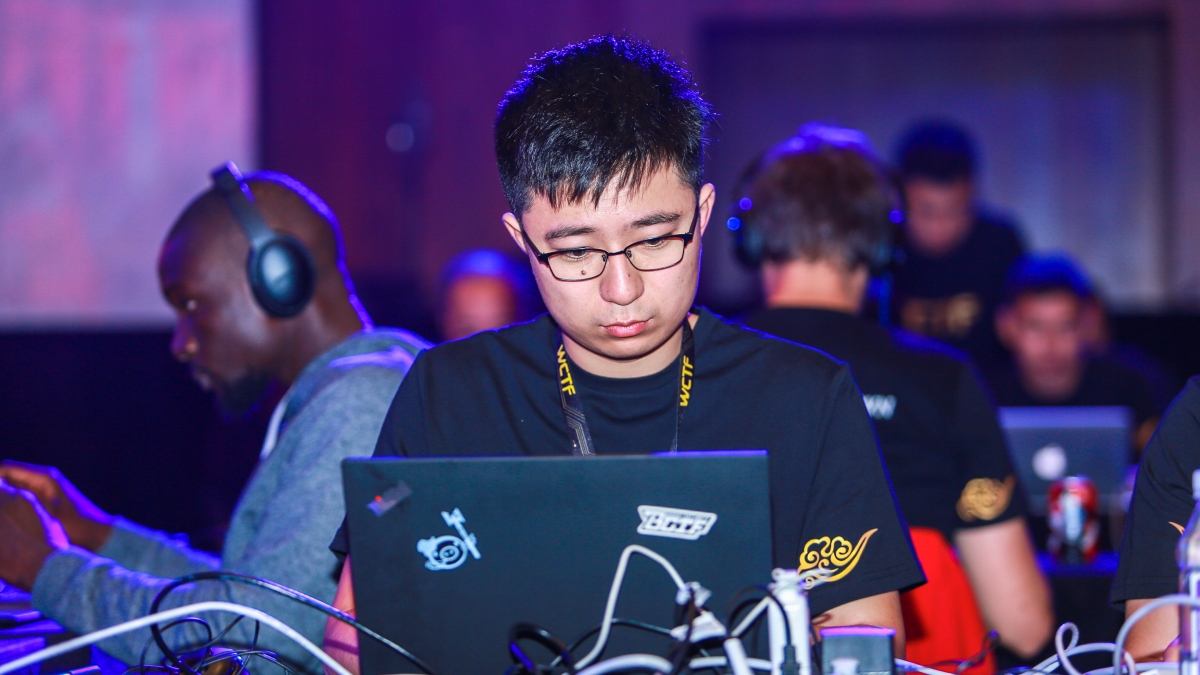An Arizona State University student has been singled out by Google for his innovative solutions to cybersecurity attacks.
On Oct. 13, the global tech giant announced the winners of the prestigious 2023 Google PhD Fellowship.
Kyle Zeng, a PhD student in ASU’s School of Computing and Augmented Intelligence, is the first ASU student to receive the coveted award. The School of Computing and Augmented Intelligence is part of the Ira A. Fulton Schools of Engineering.
“I was thrilled when I knew I got the award,” said Zeng from Japan, where he was attending a Google hacking event. “This award means a lot to me.”
The Google PhD Fellowship is awarded globally to exemplary students in computer science and related fields.
The award acknowledges the students' contributions to their areas of specialty and provides funding for their education and research. The fellowship also pairs recipients with a research mentor at Google.
Zeng said the fellowship validates the importance of his work.
“Even a big tech company like Google recognizes my research and is willing to sponsor me,” said Zeng, who is a research assistant at the Laboratory of Security Engineering for Future Computing. “Winning this award motivates me to dive further into meaningful research and bring better security to all users.”
He says the recognition also serves as a confidence booster.
“For me, most of my time is just research, research, research,” he said. “Sometimes I am so deeply focused on what I haven't achieved and I experience imposter syndrome. This fellowship reminds me of my achievements.”
Zeng’s research addresses the real dangers of vulnerabilities in the world of cybersecurity.
Undiscovered exploitable vulnerabilities in systems allow attackers to fully control a victim's mobile phone, laptop and all other electronic devices, Zeng said.
“Attackers can compromise a victim's system without them doing anything — not even clicking a link. It allows attackers to steal critical information, (like) bank accounts, from a victim, track their locations, record their conversations and more,” he said.
Zeng’s successful solutions are rooted, in part, in his approach to cybersecurity problems that are traditionally researched from a defender’s position. Zeng focuses on offensive security research by assuming the role of the hacker.
“This unique perspective allows me to pinpoint weaknesses and make it harder to attack those systems,” he said.
Zeng is also exploring the possibility of turning the offensive analysis into a systematic model to guide other researchers. Hopefully this model can motivate others to join the offensive analysis and eliminate cyber attacks in the future.
Zeng’s advisor, Tiffany Bao, said she is proud of his accomplishments. Bao is the associate director of research acceleration at the Center for Cybersecurity and Trusted Foundations. The center helps address the long-term cybersecurity challenges facing the nation by bringing together faculty, students, sponsors and industry partners to identify and address challenges.
“He is doing a lot of amazing and impactful research,” said Bao, who is also an assistant professor in the School of Computing and Augmented Intelligence.
Bao said that having Zeng win the top cybersecurity award speaks to the resources the Fulton Schools of Engineering provide. In 2022, the schools invested $145 million in research.
“Zeng’s recognition means ASU is not only creating research but is making a social impact on cybersecurity to industry,” she said.
According to Mitch Hobza, Zeng will be joining a cohort of outstanding PhD students conducting cutting-edge research across the world.
“He will represent ASU’s commitment to global engagement and the innovative research being conducted with his faculty mentors,” said Hobza, senior program manager for ASU’s Distinguished Graduate Fellowship program in the Office of National Scholarships Advisement. “ASU joins six other public U.S. institutions with Google PhD Fellows for the 2023 cycle and, for the first time, will be represented alongside top-ranking institutions across the globe.”
Top photo: Kyle Zeng during a cybersecurity competition event. Photo courtesy 360 Vulcan
More Science and technology

4 ASU researchers named senior members of the National Academy of Inventors
The National Academy of Inventors recently named four Arizona State University researchers as senior members to the prestigious organization.Professor Qiang Chen and associate professors Matthew…

Transforming Arizona’s highways for a smoother drive
Imagine you’re driving down a smooth stretch of road. Your tires have firm traction. There are no potholes you need to swerve to avoid. Your suspension feels responsive. You’re relaxed and focused on…

The Sun Devil who revolutionized kitty litter
If you have a cat, there’s a good chance you’re benefiting from the work of an Arizona State University alumna. In honor of Women's History Month, we're sharing her story.A pioneering chemist…


